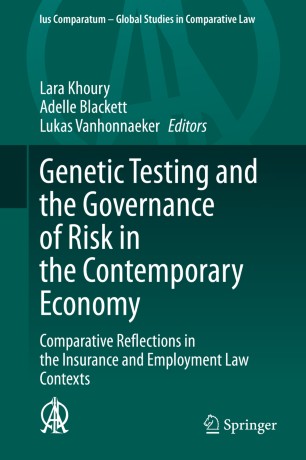

Most ebook files are in PDF format, so you can easily read them using various software such as Foxit Reader or directly on the Google Chrome browser.
Some ebook files are released by publishers in other formats such as .awz, .mobi, .epub, .fb2, etc. You may need to install specific software to read these formats on mobile/PC, such as Calibre.
Please read the tutorial at this link. https://ebooknice.com/page/post?id=faq
We offer FREE conversion to the popular formats you request; however, this may take some time. Therefore, right after payment, please email us, and we will try to provide the service as quickly as possible.
For some exceptional file formats or broken links (if any), please refrain from opening any disputes. Instead, email us first, and we will try to assist within a maximum of 6 hours.
EbookNice Team

Status:
Available0.0
0 reviewsThis book addresses emerging questions concerning who should bear responsibility for shouldering risk, as well as the viability of existing and experimental governance mechanisms in connection with new technologies. Scholars from 14 jurisdictions unite their efforts in this edited collection to provide a comparative analysis of how various legal systems are tackling the challenges produced by the legal aspects of genetic testing in insurance and employment. They cover the diverse set of norms that surround this issue, and share insights into relevant international, regional and national incursions into the field. By doing so, the authors offer a basis for comparative reflection, including on whether transnational standard setting might be useful or necessary for the legal aspects of genetic testing as they relate to the insurance and employment contexts.
The respective texts cover a broad range of topics, including the prevalence of genetic testing in the contexts of insurance and employment, and policy factors that might affect this prevalence, such as the design of national health or social insurance systems, of private insurance schemes or the availability of low-cost direct-to-consumer genetic testing. Further, the field of genetics is gaining in importance at the international and regional levels. Relevant concepts – mainly genetic tests and genetic data/information – have been internationally defined, and these definitions have influenced definitions adopted nationally. International law also recognizes a “special status” for human genetic data. The authors therefore also consider these definitions and the recognition of the special status of human genetic data within regional and national legal orders. They investigate the range of norms that specifically address the use of genetic testing in employment and insurance, encompassing international sources – including human rights norms – that may be binding or non-binding, as well national statutory, regulatory and soft-law mechanisms. Accordingly, some of the texts examine general frameworks relevant to genetic testing in each country, including those that stem from general anti-discrimination rules and norms protecting rights to autonomy, self-determination, confidentiality and privacy. In closing, the authors provide an overview of the efficiency of their respective legal regimes’ approaches – specific and generalist – to genetic testing or disclosure of genetic information in the employment or insurance contexts, including the effect of lack of legal guidance. In this regard, some of the authors highlight the need for transnational action in the field and make recommendation for future legal developments.